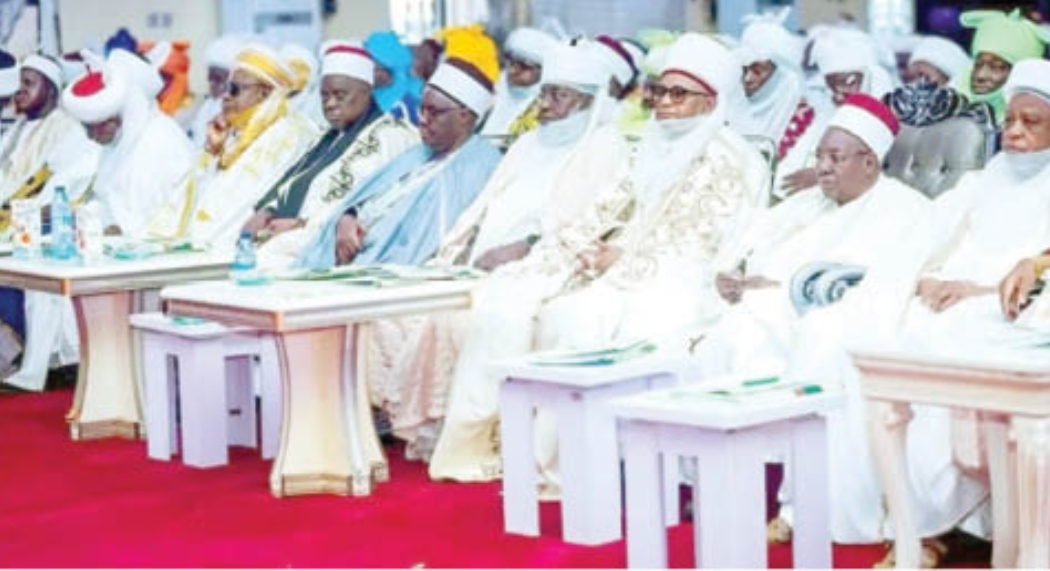PAG Felicitates Muslims on Commencement of Ramadan Fast
February 18, 2026TOP TEN MUSLIM UNIVERSITIES IN AFRICA
February 14, 2026ANALYSIS: Why Nigeria GDP is not the best in Africa Despite having the largest market
February 10, 2026Bidding Farewell To Ramadan Not To Spirit It Kindles
Bidding Farewell To Ramadan Not To Spirit It Kindles

By Sanusi Abdullahi Oyelekan
As Muslims around the globe set to end the month of spiritualities, our correspondent, Sanusi Abdullahi Oyelekan, examines the significance of the month and what should be expected of a Muslim that’s about to get off the ship of the Blissful experiences of Ramadan.
It has been a rewarding 28-day spiritual activity; a period of recompense, a period of closeness to Allah, a period of illumination by the Glorious Qur’an, a period of re-direction of destinies and possibilities, of charity, of divine blessings. It is indeed a memorable period.
It is no longer a news that Muslims around the world would tomorrow (Monday) be looking out for the new moon of Shawwaal in marking the end of Ramadan having passed through this spiritual exercise to be spiritually transformed. It is time to celebrate, but an important part of the celebration is to express warm wishes to one’s neighbors and invite them for a meal. One could choose to celebrate it with the poor to make them happy.
It is important to remember one of the cardinal responsibilities this month— Zakatul-Fitr. It is obligatory at this time of bidding farewell to Ramadan. That is why the suffix fitr is attached to it— to commemorate the occasion of breaking the fast.
For the umpteenth time, a man has to pay on behalf of himself and his wife— even if she is wealthy on her own— and his children and parents, if they are poor, and his daughter, if she is married but the marriage has not yet been consummated.
If his son is rich, he does not have to give Zakatul-Fitr on his behalf. A man has to give Zakatul-Fitr on behalf of a divorced wife, whose divorce process (Talaaq) is not yet concluded (i.e., she is still in the ‘iddah of a first or second talaaq). But not in the case of one whose divorce is finalised.
A son does not have to give Zakatul-Fitr on behalf of a poor father’s wife, because he is not obliged to spend on her. A Muslim traveller is also enjoined to pay his Zakat where he spends the last two days of Ramadan. If a person dies before Maghrib, on the last day of Ramadan, Zakatul-Fitr would not be obligatory upon him even if he fasted all the other days of the month. On the other hand, if a child is born after Maghrib, it would be obligatory to pay Zakatul-Fitr on his or her behalf.
It should be given on one of the foodstuffs which is commonly consumed in the society. The popular measurement of it is four handfuls on behalf of one person. If it has to be given in money, although this is not encouraged, the societal demands and circumstances sometimes call for it; it has to be well-calculated that the appropriate money equivalent is given in accordance with the existing price of the desired foodstuff in the market in your area and at the right time too.
In essence, the rationale behind it is to make others happy during the festive period; it purifies the fasting Muslim from any shortcoming during the fast. And since every Muslim needs this, it is therefore obligatory for him whether rich or poor to pay Zakatul-Fitr.
The Prophet (SAW) said: “Make them (i.e. the poor and destitute) rich on the day of `Eid-ul-Fitri. The Qur’an says: “The Zakah are only for the Fuqaraa (poor), and the Masaakeen (the needy) and those employed to collect (the funds); and for to attract the hearts of those who have been inclined (towards Islam); and to free the captives; and for those in debt; and for Allah’s Cause, and for the wayfarer (a traveller who is cut off from everything); a duty imposed by Allah. And Allah is All-Knower, All-Wise” (Q9:60).
Meanwhile, Muslims are encouraged to keep the spirit of Ramadan alive every day for the next 11 months.
That is the best gift to give Ramadan as it bids farewell.
Eid-il-Mubarak In Advance!
END.











